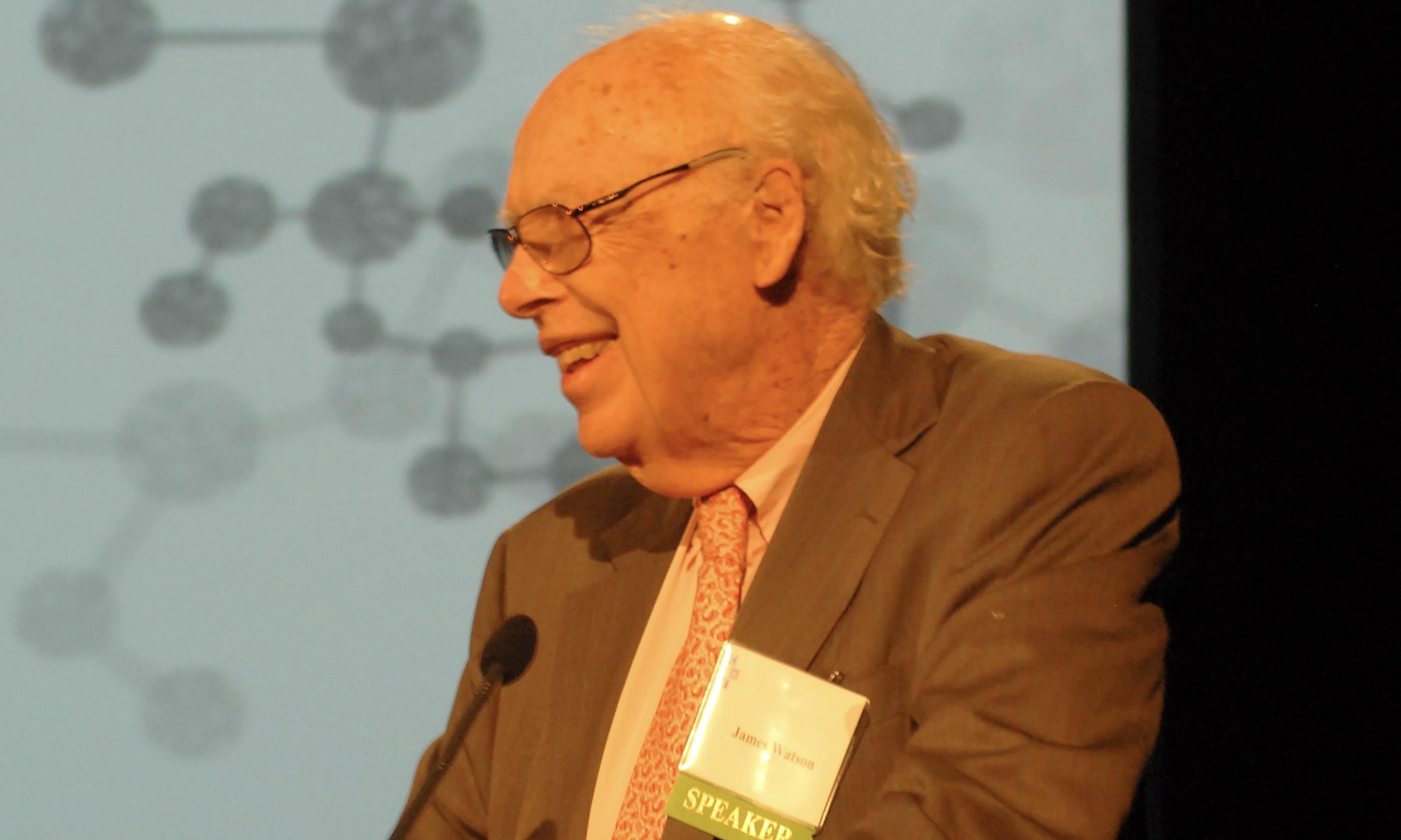We marked last week the death at age 97 of James D. Watson (1928 – 2025), co-discoverer with Francis Crick of the structure of DNA. Reflecting on his life leads to contradictory responses: a hero of science, whose work led to insights pointing to life’s intelligent design, he was also a bigoted atheist and champion of pseudoscientific racism.
The names Watson and Crick are almost as iconic as the DNA double helix that they elucidated in 1953, for which they won the 1962 Nobel Prize in Physiology or Medicine along with Maurice Wilkins. One discovery led to another: Crick’s sequence hypothesis built directly on the elucidation of DNA’s elegant structure.
A Chemical Language
Life’s information, or part of it, was revealed as taking the form of a chemical language — not just figuratively but literally. As philosopher of science Stephen Meyer, first in Signature in the Cell, has argued, such a language — a digital code (every language is a code) — is reasonably inferred to have come from a mind: an intelligent designer. As far as human experience can show, such codes always come from minds, and from nowhere else.
Watch a clip from on this from our documentary The Information Enigma:
Return of the God Hypothesis
In other words, Watson and Crick set the stage for what Dr. Meyer calls the God Hypothesis. Their work with DNA formed the basis one of the three scientific discoveries referred to in the title of Meyer’s book.
Yet Watson himself could not see the implications. “Every time you understand something,” he said in 2003, half a century following his discovery with Crick, “religion becomes less likely.” In fact, the opposite was true: when this particular something was understood, theistic belief became much more likely.
His atheism took still darker turns when he proposed that scientists assume the role deities, through genetic engineer: “In all honesty, if scientists don’t play god, who will?” And he denied any purpose to human existence, telling Richard Dawkins, “Well I don’t think we’re for anything. We’re just products of evolution.”
Following Darwinian Premises
Such nihilism, denying man’s exceptional place in nature, often goes hand-in-hand with other perverse thinking about humans beings. If humans are no more than animals, perhaps human races follow animal paths, with some beastly lineages among us outranking others in intellectual ability. Following Darwinian premises, Watson theorized that genetic isolation in African could account for what he took to be the inferiority of Africans.
He said in 2007, “All our social policies are based on the fact that [African] intelligence is the same as ours, whereas all the testing says, not really.” He doubled down on that in 2019 with the remark that, “There’s a difference on the average between blacks and whites on IQ tests. I would say the difference is genetic.”
See this clip from John West’s award-winning documentary Human Zoos for more:
For these statements Watson was, as we say now, vigorously canceled. He lost his leadership role and all honors at Cold Spring Harbor Laboratory, and was even compelled, just to support himself financially, to sell his Nobel Prize medal (for $4.1 million, at auction by Christie’s). The golden medal was generously returned to him by the successful bidder.
The Immaterial Genome
In more recent years, it’s become clearer that the genetic information of life is not limited to DNA but instead, in some very significant proportion, resides outside the cell. There simply isn’t enough information in the physical genome to account for cellular operations.
I review some of this research in my recent book, Plato’s Revenge: The New Science of the Immaterial Genome, highlighting the research of biologist Richard Sternberg. It emerges that a human being is more than the genes coded in our DNA. This substantially complicates any attempt to draw conclusions about differences, due to genetic isolation, between the races. Science itself argues against Watson’s racism.
James Watson’s legacy is for the ages. It will outlive him by centuries. It would be fair if his ignoble thinking about faith and race faded into the background with time, perhaps a lot of time. Let’s hope that whoever writes the future history of science will, like the bidder for that Nobel medal, be merciful to him.








































